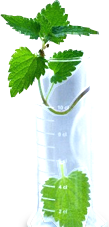



Author(s): Swagata Chakraborty*, Apala Sengupta, Abichal Chattopadhyay
Classically it has been mentioned that Bahudrava Kapha and Bahuabad dhameda are the causative factors in the disease Prameha. Clinically Prameha can be correlated with type II Diabetes mellitus. Sequels of hyperlipidemia are found in the course of disease of Diabetes mellitus. Hence in this study the efficacy of Pippali was evaluated to reduce non-beneficial saturated circulatory lipids and as well as to control Diabetes mellitus. This study was a prospective, randomised and control clinical study with two groups, having 20 patients each, of which one was treated with Pippali and another with Haridra respectively considered as group A and group B (control). Patients were selected from OPD and IPD of the institute - Institute of Post Graduate Ayurvedic Education and Research at Shyamadas Vaidya Shastra Peeth Hospital irrespective of sex and religion. Selection was done as per subjective criteria of Prameha and Medadusti and objective criteria of FBS, PPBS and Lipid profile. Exclusion and inclusion criteria also followed. Pippali had been administered orally at a dose of 3 gm/day at divided doses. Before treatment and after treatment effects had been assessed statistically. Before treatment and after treatment assessment of blood sugar and lipid profile estimation had shown a significant reduced value of blood sugar and blood lipid level with a P-value of < 0.001. Virtually having katu rasa and ushnavirya, Deepana and pachana activities of Pippali pacify the aggravation of kapha. Its laghu and ruksha properties help to reduce the lipids. This combined effect controls hyperlipidemia and hyperglycemia in Diabetes mellitus.